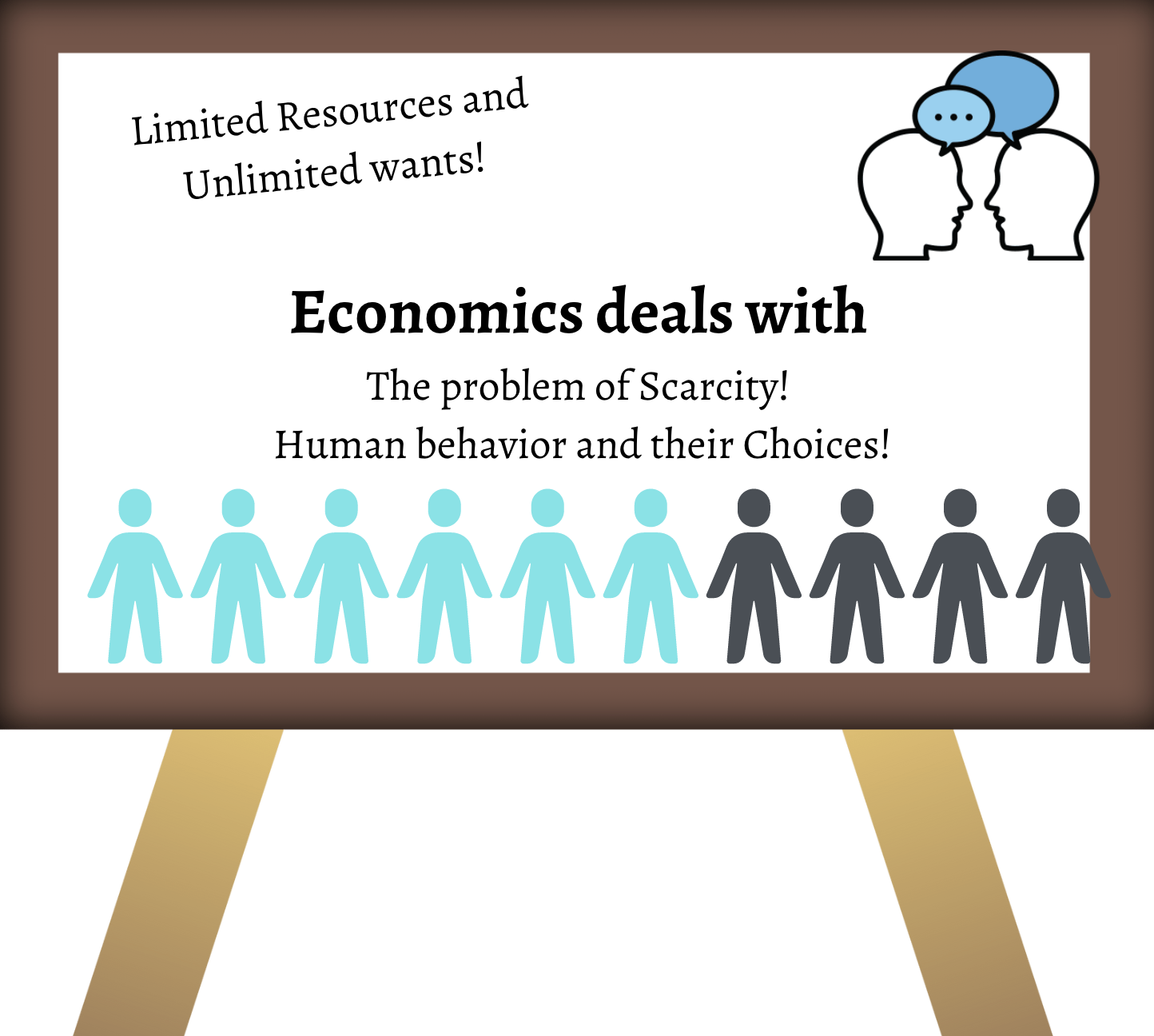A lot of people think economics is all about money, banks, complicated graphs, and mathematical modeling, but truly speaking it is much more interesting than that.

So, what exactly is Economics?
Economics is a study of human behavior, understanding the choices people make with their limited resources. By resources, we mean the tools needed to produce goods and services for humans consumption for a comfortable life. These resources are usually classified into 1)land, 2)labor, 3)capital such as tools and machinery, 4)human capital or entrepreneurship, and 5)our precious time.
We don’t usually have an infinite amount of these resources, so how do we allocate the limited resources to make us better off and happier? In short, Economics deals with our struggle to achieve happiness in a world full of constraints and limitations.
The word Economics comes from the Greek word oikonomia, which means household management. It starts with an individual making a tradeoff, choosing the best option that satisfies their wants, and forgoing the other best alternative use of their resources. From individual households, it moves to businesses, deciding what and how much to produce and sell. And lastly, government and the central bank decide when and how to intervene to ensure maximum happiness for its citizens.

We are making choices every single day. For example, if you are reading this, you have chosen to gain some knowledge vs. maybe, watching a TV Show or doing something else.
While reading this, you think you are making the best use of your time. (or at least I hope you do 😉 In short, you apply economics every minute (even when you don’t know it).
What does the field of Economics cover?
As you learn Economics, you can find answers to some fascinating questions such as:
- How the price of anything is set?
- How do we measure a country’s prosperity?
- Why are some countries rich, while others are still poor?
- What is inflation?
- How do we understand business cycles?
- What tools do the central bank and government use when the economy is facing inflation or a recession?
- Is international trade a good thing?
- And is reading this article even worth my time?
Trust me, the list is endless. There is a wide variety of areas that economics can cover. Economists try to solve many of these problems our world is facing today by simply understanding human behavior and the choices people make. I might have used the word choice a lot here, but hope you got the idea?
You will understand our rapidly evolving complex economies and how the economic fundamentals can still explain the changes.

You can apply Economics in your day-to-day life, such as while analyzing the cost and benefits of a particular decision you are going to make and managing your finances.
Similarly, you will also understand how economic principles apply to the businesses around us from a small local donut shop to a big company like Apple.
Understanding economics will enable you to evaluate the feasibility of promises made by politicians to get your vote.
Believe it or not, Economics can also help us understand the best strategy to deal with environmental issues, such as global warming and pollution.
Last but not least, since Economics is based on human behavior, there can be more than one view on any economic issue. It’s not an absolute science and many times economists differ on how a certain situation should be handled.
When you study Economics, you can acquire the necessary skills to argue why a specific viewpoint makes more sense to you.
Some key principles of economics are:
- Everything has an opportunity cost and experiences diminishing returns.
- People are rational (for the most part) and act in their self-interest (even charity is considered self-interest since it gives you some happiness).
- Supply and demand interact through an invisible hand.
- Comparative advantage fosters trade.
- People think on the margin.
I will explain the above points in detail in my other posts. We will also dig into the two main subdivisions of economics: macroeconomics and microeconomics. We are only getting started!

